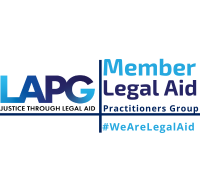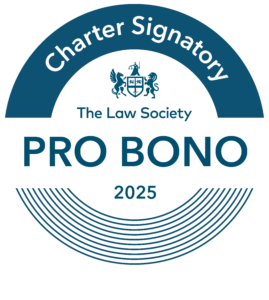Civil Liberties
RK v PB – Obtained £9,366 for unlawful delays to client’s parole hearing following a direction for release.
MW v Ministry of Justice – Jonathan helped secure a payment of damages for MW who was found to have been unlawfully detained in custody for 72 hours following a failure by the Defendant to release him over the weekend.
R (on the application of Cruz) v G4S Care and Justice Services Ltd – Jonathan successfully secured an amendment to a policy implemented by the Director of HMP Rye Hill to institute an indiscriminate and complete ban on all manga, anime and neo items despite previous iterations of the policy permitting certain items in line with security considerations. After Jonathan served a Letter Before Action proposing a Judicial Review of the policy on the grounds of illegality and breaches of Articles 10 of the European Convention on Human Rights, G4S immediately changed their policy and created a list of 87 approved titles of manga, anime and neo that could be accessed by prisoners.
AM v HO (settled) – Damages of £21,500 for 101 days of unlawful detention.
AL v HO (settled) – Damages of £10,000 for 47 days of unlawful detention.
ER v MOJ: Danielle assisted the Claimant who was unlawfully detained by the Defendant for a period of 112 days. The matter was settled out of court with the Claimant receiving damages of £25,000.
JG v MOJ– Obtained £1,000 damages for the Claimant after he was falsely detained for an additional 4 days in prison, due to staff not being available to release him over the weekend period.
R(FDJ) v Secretary of State for Justice [2021] EWHC 1746 (Admin) – The claimant, former female prisoner, argued that transgender prisoners convicted of sex offences should not be detained in female prisons. The court dismissed the claim and said that such restriction would violate the right of transgender women to live in their chosen gender. This case received national media attention in the BBC, Telegraph, Guardian and Pink News.
MS v. Home Office – The claimant is a foreign national who cannot be deported from the UK for legal reasons. The Home Office attempted several times to deport MS without success and on two occasions kept him in one of their detention facilities. Each time, the claimant was released and received substantial amount of compensation. This did not deter the Home Office from detaining MS again and this time he received £22,000 of damages.
CR v. Home Office – The claimant was detained after he had served a custodial sentence despite the legal barrier to his removal. His subsequent asylum appeal was successful and he received £38,000 in damages for the period of unlawful, avoidable detention.
IK v Home Office – A stateless asylum seeker was detained on two separate occasions. The defendant was fully aware that his removal from the UK was not possible but chose to detain him after a minor offence. The claimant accepted £20,000.
TG v. Home Office – The defendant detained the claimant for several months despite not knowing the Claimant’s country of origin. The defendant did not know whether the claimant could be removed and, if so, where. The claimant received £38,000.
DL v. Home Office – A man with severe mental health problems was detained by the defendant after a period of detention authorised under s.3 MHA. The defendant had tried unsuccessfully to deport the claimant on several occasions and had unlawfully detained him in the past for which the claimant received £75,000. This did not deter the defendant from using their powers unlawfully and the claimant received compensation of £15,000.
ND v SSHD – The Claimant had been unlawfully detained for a period of 1000 days, the majority of which was at HMP Manchester a high security prison. The Claimant suffered from mental health problems which was known to the Home Office. The Defendant argued that it was lawful to continue detention because removal would be carried out at some point. The Claimant successfully argued that as removal was not imminent and given their vulnerable mental health condition, ongoing detention was unlawful. The Claimant received £70,000 in damages.
TW v Home Office [2020] (Unreported) – The Claimant had been unlawfully detained for a period of approximately 9 months. The Home Office had attempted to deport the Claimant to a country which had no record of the Claimant. A settlement of £48,000 was agreed to compensate the Claimant for the extended period in immigration detention.
M.M. v. SSHD – Unlawful detention claim for a client with a refugee status was settled with the Government Legal Department for £35,000. The client was detained for over 6 months by the Home Office despite the fact that he had refugee status and there was therefore a legal barrier against his removal throughout.
IB v. SSHD – The claimant died shortly after his release from immigration detention. The defendant resisted the claim and denied the allegations that the claimant’s detention was excessive and unjustified, both in light of the well-known and published policy and the claimant’s documented mental health condition. However, despite the repeated attempts by the defendant to delay the proceedings, the claim was settled and the family of the deceased claimant received compensation of £59.000.
MS v. SSHD – Asylum seeker from Eritrea who was unlawfully detained for several months after a lengthy prison sentence. His claim was settled out of court and M.S. received £13,000 compensation.
N.N. v. SSHD – Thins claim for unlawful detention of a victim of trafficking was settled with the Government Legal Department for £12,000. The client was detained for around 45 days by the Home Office despite the fact that:
(1) they had been recognised as a victim of trafficking
(2) they were receiving psychological support due to the trafficking situation, and
(3) they had won their deportation appeal.
JPS. v. MoJ – A prisoner whose sentence has been miscalculated. Having served additional 145 days, J.P.S. received a full apology and £11,200 settlement.
LS v MoJ – This client raised an issue of a miscalculated prison sentence following his recall to prison. The Secretary of State had failed to take into account the full number of days our client spent on remand and he was awarded £12,000 compensation.
AHM v. SSHD – The claimant, having served a prison sentence, was detained for an excessive period. He had no leave and, following the criminal conviction, he was supposed to be deported. During this period the claimant rejected the attempts of the SSHD to facilitate an application for an emergency travel document and made repeated, although unsuccessful, asylum applications. The claimant had been diagnosed with a mental health condition which worsened during the period of immigration detention and led to the loss of capacity shortly after his release. The court accepted that approximately five months of the immigration detention was unlawful.
KK v. MoJ – A man who was not released from prison after the Parole Board decision received £1,000.
Injury in police custody
BB v. The Commissioner of Police of the Metropolis – The claimant was a labourer who lived in an overcrowded house and shared his ground floor front bedroom with two other men. All other rooms and facilities in this property were shared by multiple occupants.
The defendant relied on the unconfirmed intelligence and believed that one or more occupants had kidnapped a female and were in possession of firearms. The house was raided at night and a large number (assessed to be more than ten) of stun grenades were thrown at the people in the house, most of whom had gone to sleep. Several residents later complained that the police used excessive force and some alleged to have been beaten unconscious.
Our client, who had never had any dealings with police before this incident, suffered significant burns and scarring to his arm and shoulder and numerous shrapnel wounds to his chest and back. Several pieces of metal remained lodged in various parts of his body. Although this claim was initially defended, the claimant received a substantial amount of damages and costs.
BS v The Chief Constable of Leicestershire Constabulary – The police had been called to investigate the noise and smashed window at the supported housing property. The call was made by the night staff and by the time the officers arrived, our client was awake and came to find out what was happening in and around his home. He was barefoot and had only a pair of jogging bottoms on.
One of the officers who was outside this property, without warning discharged a taser at our client through that broken window and one of the barbes was lodged in his genitals. The officer then entered the property through the same window and despite protests from the night staff, verbally abused and arrested the claimant.
Although it was only 4C outside and the officers wore thick jackets, the claimant was handcuffed and taken out almost naked, wearing just the blood-stained jogging bottoms. At the local hospital, he received medical attention for his injury and his jogging bottoms were destroyed. The officers by then had realised that they had assaulted a wrong person but did nothing to remedy this situation. The claimant was left naked, without money, phone or means of transport. He later received significant amount of compensation but the police never apologised or disciplined their officers.
WS and another v. The Commissioner of Police of the Metropolis – Two cyclists have been stopped by the police for the unknown reason. This was followed by a verbal argument and one of the cyclists, a disabled man in his sixties, was wrestled to the ground, restrained and taken into police custody. He was subsequently released without charge. The second cyclist, a petite female, was kicked in the chest for no justifiable reason. They received £10,000 and £11,000 in damages.
JC v. Noonan – A man in the police custody was given an excessive amount of medication owing to the poorly maintained records and inadequate communication between the staff members. The claimant required an urgent examination which caused some panic, anxiety and fear. Although the medical results did not show any damage to the claimant’s health he received £1,000 from the defendant.
Assault in prison
AF v G4S Care & Justice Services (UK) Ltd – Jonathan secured £5000 in damages for the Claimant who was violently assaulted by a prison officer whilst resident at HMP Five Wells. The Claimant was subject to such a beating that several of the perpetrator’s colleagues resigned from their posts in protest of the treatment. The perpetrator was later charged with assault by the Crown Prosecution Service.
BK v. MoJ – The claimant was assaulted and seriously injured but the attack that could have been prevented if the officers had acted on the information received from the client, his probation officer, prison chaplain or the client’s family members. The claimant received £50,000 of damages and costs.
LM v. MoJ – The claimant was detained in a maximum security prison where he was a victim of an assault. The perpetrator was then taken for adjudication and the claimant was summoned to give witness evidence. Both of them had been searched before entering the adjudication room but the assailant managed to conceal a blade and stabbed the claimant three times before he was restrained. Our client received £20,000 in damages.
DB v. MoJ – A prisoner was assaulted by another inmate who was kept in the maximum security conditions. This prisoner was serving a long sentence for a violent offence and was known for propensity to violence. DB suffered a facial and shoulder injury and received £3,000 in damages.
LM v MoJ – The claimant was injured in an unprovoked attack by a man armed with a bladed instrument. He suffered facial injuries which resulted in permanent and significant scars. He received £10,000 in damages.
AB v MoJ – A serving prisoner was held in inadequate detention facilities upon arrival to prison. The officers failed to recognise the threats made against him and did not provide adequate protection. A.B was assaulted by a prisoner armed with a blade and suffered cuts to his arm. Despite his transfer to another prison, steps had not been taken to identify him as a vulnerable prisoner and A.B. was attacked again. This time he had an injury to his chest which left a scar. A.B. accepted £2,400 in compensation.
AR v. MoJ – The claimant in this matter had warned the defendant that he was at risk of assault by a group of prisoners. This warning was ignored and the claimant was attacked with a blade and cut across his chest. He received £6,500 in damages.
JW v. MoJ – The claimant who had been standing on the landing was assaulted by a deranged inmate armed with two blades who was also high on drugs. This prisoner assaulted or stabbed another three prisoners before kidnapping his fifth victim creating a hostage situation. This was resolved by the riot unit. The claimant received a cut to his neck and psychiatric injury and settled his claim for £6,000.
Public Law
R (on the application of DS) v PB – The High Court quashed a Parole Board decision refusing release, finding that it was procedurally unfair and legally flawed. The Court held that the Board had failed to apply the Supreme Court’s authoritative guidance in R (Pearce) v Parole Board and its own published “Guidance on Allegations”, rendering the decision unsafe and unlawful.
R(Dich & Murphy) v Parole Board [2023] EWHC 945 (Admin) – Daniel successfully represented Mr Murphy in a judicial review of the Parole Board’s failure to direct Mr Murphy’s case to an oral hearing. The Court found that fairness required that Mr Murphy be given a right to an oral hearing as there were significant factual issues in dispute. As a result, the High Court quashed the Parole Board’s decision to conclude Mr Murphy’s case on the papers, ordering that the Parole Board consider Mr Murphy’s application for release by a fresh panel at an oral hearing at the earliest date possible.
This challenge was also significant for the wider prison population whose release will be decided by the Parole Board as the High Court found that the Parole Board guidance on the ‘at risk’ period for extended determinate and determinate sentence prisoners was unlawful. The High Court’s decision overruled the Parole Board’s guidance which was that Panel’s were entitled to consider risk on an indefinite basis in the case of determinate and extended determinate sentence prisoners which was the same test applied for prisoners serving life and IPP sentences. The High Court held that the Parole Board were entitled to consider risk beyond the sentence expiry date, so long as the appropriate causal link could be established. The High Court made clear that the word indefinite was to be removed from the Parole Board guidance.
AJ v Parole Board and SSJ – Claimant was a determinate sentence prisoner. On 24 February 21 the 1st Defendant directed the 2nd Defendant to release him on licence on 10 March 21. The decision whilst available on a central online database was not sent to either the Claimant of the 2nd Defendant until 10 March 2021 by which time the Claimant’s bed space at an approved premises was no longer available.
On the same date an application was made by the Claimant’s Offender Manager to vary the date of release to when approved premises would be available. A few hours later the 1st Defendant amended the release date to 8 April 2021. On 12 March 2021 a further application was made by the Claimant’s Offender Manager to amend both the Claimant’s date of release and the location of the approved premises he was to reside at on licence. On 15 March 2021 the 1st Defendant further amended the Claimant’s release date to the same day and amended the location of his approved premises. The Claimant was released later that afternoon.
A JR was brought to challenge the 1st Defendant’s decisions dated 10 and 15 March 2021 on the basis that the decisions were unlawful as the 1st Defendant was functus officio once it had directed the Claimant’s release on 24 February 2021; it had no power to amend the date of release; and that the 2nd Defendant’s decision to continue to detain the Claimant between 10 and 15 March 2021 constituted false imprisonment.
On 22 May 2022 Mr Justice Fordham ordered that the Claimant’s claim for JR be granted; it be declared that the Parole Board does not have the power to make a decision to re-fix the “date for a person’s release on licence” in a case in which it has already dealt with a reference to it by making a decision to “fix a date for the person’s release on licence” pursuant to section 256(1) of the Criminal Justice Act 2003. The Claimant received £2000 in damages from the 2nd Defendant.
Gifford Hull v Parole Board [2021] EWHC 128 (Admin) – High Court quashes a decision of the Parole Board for being procedurally unfair where concerns raised by a victim personal statement were not tested at an oral hearing. The Court asked the Law Society and Bar Council to give guidance on professional duties when representatives refuse to see a victim personal statement if they believe it puts them in conflict with their duties to their lay client.
Fuller v Parole Board (2020) – Judicial Review of the Parole Board quashing the decision where the Panel took into account irrelevant factors and failed to take into account relevant factors.
R(Samuel) v The Parole Board for England and Wales & Anor [2020] EWHC 42 (Admin) – Our public law team has succeeded in a claim for judicial review of a decision of the Parole Board. The Defendant Parole Board had refused to transfer our client to open conditions. Kesar & Co successfully argued that the incorrect legal test had been applied by the Panel which heard our client’s case. The Court provided clarity to the Board as to the appropriate manner in which it should approach the open conditions test. The Court approved the test set out in R(Hutt) v Parole Board [2018] EWHC 141 (Admin). This test requires the Board to undertake a balancing exercise which considers the benefit of open conditions to the offender, as well as his or her risk to the public.
On the facts of this case, the Court was satisfied that the Parole Board had “signally failed” to carry out the required balancing exercise. There was a possibility that the Parole Board Panel had conflated the tests for release and open conditions. The Court determined that, whatever the reasons for failing to carry out the balancing exercise, there had been a clear error of law. This case clarifies that where open conditions are sought by an offender, the Parole Board must apply its mind to a separate test. To avoid unlawfulness in the resulting decision, the benefits of open conditions to the offender should be set out and balanced against the risks of absconding.
This case also provided guidance on the rule set out in (R (Davies) v. Birmingham Deputy Coroner [2004] 1 WLR 2379 that inferior Courts and Tribunals should not pay the costs of proceedings brought against them, where they maintain a neutral position. As is its litigation strategy, the Parole Board remained neutral in these proceedings. The Parole Board argued that it should not therefore be liable for the costs of losing the litigation. The Court disagreed. During the course of the case the Parole Board had behaved unreasonably in its approach to the disclosure of documents. The Parole Board had refused to provide documents in response to sensible and proportionate requests for the note of the hearing. As a result the Parole Board was ordered to contribute to the costs of these proceedings.
The Court clarified that the rule in Davies does not necessarily provide blanket costs protections for bodies such as the Parole Board. Where a Defendant behaves unreasonably, costs can and will follow, regardless of whether the Defendant maintains a neutral position. This may be of particular interest to lawyers who bring challenges against Coroners, as well as those who challenge Parole Board decisions.
The Claimant in this case was represented by Killian Moran, our public law supervisor. Sian Beaven of Charter Chambers was instructed as Counsel.
R(JC) v The Governor of HMP Gartree and the Secretary of State for Justice CO/3705/2018
We successfully represented a prisoner who challenged the way legally privileged correspondence was dealt with in the prison estate. The Defendant operated a policy which permitted prison officers to unlawfully open correspondence from lawyers and the Court without the presence of the prisoner to whom the correspondence was addressed. The Defendant eventually conceded that the policy under challenge was unlawful and agreed to withdraw it from use. During the course of this litigation a national policy as to how prisons should treat legally privileged mail was issued. The Claimant was awarded declaratory relief and damages as his legally privileged correspondence had been unlawfully opened.
The Claimants, Mr Bowen and Mr Stanton, were both convicted of serious offences and sentenced to indeterminate sentences. Both claimants had served the minimum period and were eligible for parole. The Parole Board then reviewed their cases and recommended release to approved premises. Owing to demand for such accommodation, each claimant had to wait several months to be released. They challenged this delay and argued that their detention was arbitrary and unjustified. The court held that there was no breach of public duty akin to James and further detention caused by the lack of accommodation did not break the causal link between the conviction and custody.
The defendant did not breach the claimant’s rights under Article 5 ECHR or s.28 of the Crime (Sentences) Act 1997. This was later upheld by the Court of Appeal which rejected the appeal stating that it was not the executive who determined when the appellants’ detention should end, but they could be released only with regard to the protection of the public and that they remained in custody “under their original sentences”. Unfortunately, the UK Supreme Court rejected the claimant’s application for permission to appeal. The claimants appealed to the European Court and their case (application number 49096/19) is awaiting consideration.
Queen on the application of SA v Parole Board
The Claimant had a Parole hearing which was adjourned and Judicially Reviewed. The first ground was that the Defendant did not follow the prescribed procedure under rule 8 of the Parole Board Rules 2016 and/or that the Claimant could not exercise his right of appeal since no proper notification was made by the Secretary of State as required by rule 8(5). The second ground was that the Parole Panel met with witnesses to hear evidence without the Claimants solicitor or the Claimant being present in the room. Permission was granted on both grounds and then settled by consent shortly after. This matter involved significant issues of national security.
Queen (on the application of) Goldsworthy v. SSJ
The defendant recalled a 72 year old, terminally ill lifer to prison for causing minor property damage at a care home. The claimant’s cancer diagnosis and short life expectancy may have been the reason for his poor behaviour which was ignored by the defendant. The claimant had a severe mobility problem and could move only with a gutter frame. He also had a stoma with a colostomy bag and an in-dwelling catheter as well as a number of other ailments. The problem was exacerbated by the inadequate placement in a nursing home because of the acute shortage of housing for disabled prisoners. The court quashed the defendant’s decision, declared the recall decision unlawful and ordered immediate release.
Queen (on the application) of Michael Goldsworthy v. Parole Board and SSJ
The claimant, a lifer, challenged his delayed release from prison. Although he was released after he had issued proceedings the claimant pursued the claim against the Parole Board (for the delay of the parole review by at least 16 months) and against the Secretary of State for delaying release by approximately 10 months. Although the claim was defended, both defendants agreed by consent to pay damages and costs.
The Queen (on the application of Ian Mordecai) v. Parole Board for England and Wales
The claimant successfully challenged the Parole Board decision refusing to direct his release. The court recognised that the decision not to recommend transfer to open conditions was irrational and had to be quashed. This matter has been remitted to the Parole Board for a new decision and, possibly, transfer to the open conditions. The court accepted that the weight given to the expert evidence and old convictions was not balanced with regard to the claimant’s custodial behaviour and efforts to reduce risk of re-offending.
The Queen (on the application of Bewley) v. MoJ
The claimant unsuccessfully challenged the decision of the Secretary of State not to transfer him to the open conditions despite the recommendation made by the Parole Board. The claimant argued that his progress towards post-tariff release was hampered by failures relating to his rehabilitation and arbitrary application of a public policy. He further argued that he had a substantive legitimate expectation to progress with his sentence and sought relief claiming breach of the defendant’s duty to progress indeterminate prisoners towards release, unlawfulness on the defendant’s part by his application of an inflexible policy and failure to identify good reason for departing from his earlier decision.
General prison issues
DS v MOJ – Obtained £1000 in damages and overturned the prison policy of asking client’s to open their legally privileged, Rule 39 correspondence in the prison wing office before receiving it.
R (on the application of NP) v Secretary of State for Justice – After Jonathan successfully secured the release of NP, an IPP sentenced prisoner 18 years over Tariff, the Secretary of State decided to recall NP after she visited an ill and elderly relative in hospital, despite NP having informed the Probation Service and relevant professionals of her intentions and location.
After serving a Letter Before Action on the Secretary of State for Justice alleging that their decision to recall was both unlawful and irrational failing to identify how NP’s breach of licence conditions amounted to an increase of risk in the circumstances, the Secretary of State carried out their own investigations and made the unilateral decision to release NP with immediate effect after three months of further imprisonment.
AR v Parole Board – Following Jonathan’s reconsideration representations, the Parole Board found the Parole Board’s decision to conclude our client’s case on the papers to be both unlawful and procedurally unfair. [2024] PBRA 159.
AR is a life sentence prisoner who was recalled into custody in 2022. His minimum tariff expired in 2001. Due to English being AR’s third language, previous Parole directions had accepted the need for a translator and interpreter to assist AR throughout his hearing. However, after AR’s case was adjourned to seek further information, the Parole Board proceeded with a hearing without an interpreter and without clarifying AR’s understanding of the evidence or procedure he was undergoing.
After the Parole Board failed to question AR on his view of the recall, and proposed concluding on the papers, AR’s previous solicitors failed to take his instructions and accepted the Parole Board’s untested view that AR’s case should be concluded on the papers to complete further work, despite it being evident that AR was not advised of the implications of this.
The Parole Board accepted Jonathan’s representations in full and directed AR’s case for an expedited oral hearing having found the decision unlawful and procedurally unfair.
WH v Parole Board – Following a delayed parole hearing through no fault of his own, our client was awarded £2,000.
AB v Ministry of Justice – The Claimant whilst in HMP Ford was working in the gardens when a metal bar and light fell on his head causing injuries. He was awarded £2,500 in compensation.
SL v Ministry of Justice – The Claimant was working in HMP Lewes in the recycling workshop when his ankle was struck by wood. He was awarded £1,500 in compensation.
FK v MoJ – Governor of HMP Styal refused permission to the claimant following his application for special licence to attend mother’s funeral. It was accepted that the defendant had racially discriminated against the claimant who was a Muslim and had breached the claimant’s human rights under ECHR and HRA 1998. The claimant received £1,500 compensation.
AR v MoJ – A woman, serving a short determinate sentence, was refused permission to speak to a journalist over the phone and under supervision. She was awarded £250 compensation.
JW v. MoJ – Upon transfer from another prison, the claimant who is a practising Pagan, had his tarot cards confiscated. It was subsequently established that he used the tarot cards in his religious rituals and only for this purpose. The Secretary of State returned the cards and paid the claimant’s costs.
SB v. MoJ – The claimant’s application for special licence to attend his mother’s funeral was refused for no obvious reason. He issued proceedings and received £1500.
OO v. MoJ – A man released on police bail was subject to electronic monitoring prior to his imprisonment. After his conviction the claimant continued wearing the electronic tag for 66 days in a high security prison despite his frequent complaints. He received £500.
RA v. Parole Board – The Parole Board delayed the claimant’s review for several months. His release was subsequently recommended and the claimant received £2,400 in compensation.
WT v. Parole Board – Another delayed parole review. The claimant received £1,500.
TD v. Parole Board – The oral hearing regarding the claimant’s parole matter was unreasonably delayed and he received £3,500 in compensation.
RB v. Parole Board – Unusually long delay in the parole review process was accepted as unreasonable. The claimant received £4,500 in damages.
Community care
R (on the application of LM) v London Borough of Brent – LM was a vulnerable care leaver under the care of the London Borough of Brent. However, despite knowing of LM’s complex, undiagnosed mental and physical health needs, the London Borough of Brent made the decision to move LM out of their property, against her wishes, and without lawful care act assessments pursuant to the Care Act 2014.
After Jonathan intervened on behalf of LM, the Council agreed to undertake a Care Act assessment to assess LM’s needs. However, after Brent Council failed to complete a lawful assessment, Jonathan successfully issued a claim for Judicial Review demanding a quashing of the unlawful assessment, an immediate re-assessment, and commitment to not move LM out of their property without her needs taken into account.
On the final date the Council had to decide whether to Defend the proposal for Judicial Review, the Council conceded by consent to each of the Claimant’s demands.
NB v MOJ– The Claimant was disabled, and the prison had treated him unfavourably by failing to make reasonable adjustments to accommodate his disability. Following a successful win at trial, the Claimant was awarded £3,800 in damages.
AT v MOJ– Obtained £4,500 damages for the Claimant who had not been provided with adequate adjustments to meet his care needs as a disabled prisoner.
AM v Croydon Council – Secured suitable adapted accommodation for a victim of trafficking who was disabled.
AG v Stockton on Tees Borough Council – Obtained an updated care plan for disabled client to enable him to manage his affairs better and receive help.
EK v Doncaster County Council – Obtained an updated care assessment reflecting the clients needs.
MG v. Hounslow NHS CCG – The claimant was placed in a nursing home where his personal liberty was restricted. He had no mobility aids, access to TV, reading materials etc. the claimant was assaulted by another resident but a doctor or the police were not called. The incident was not recorded. The claimant’s mobility and risk of falls had not been assessed properly and his long history of falls and injuries was disregarded. When the claimant issued proceedings the defendant complied with their duties in full and the claim was settled by consent.
Discrimination
AS v Ministry of Justice – Jonathan secured £5000 in damages for a Muslim prisoner for repeated breaches of the Equality Act 2010 by staff at HMP Frankland who continued to subject AS to religious discrimination. Despite clear policy guidance which stated that Muslim prisoners should not be required to remove religious headwear as part of searches unless supported by intelligence, AS suffered repeated breaches over 6 months.
MJ v MOJ: Dave assisted the Claimant, a disabled individual, whilst detained at HMP Wakefield was subjected to racist and abusive language and actions by prison officers. The prison officers in question exhibited far-right symbols whilst in the prison and one displayed a swastika tattoo on his person. The claim was settled out of court with the Claimant receiving damages of £23,500.
SS v MOJ: Dave assisted the Claimant, a wheelchair bound individual, whilst detained at HMP Hewell was forced to traverse stairs due to the lift being out of order. As a result he suffered a fall causing him injury and was prevent from participating in the prison regime. Further he was only able to access one suitable wheelchair adapted shower which had a broken light which created a risk of injury. He was then moved into another cell which prevented him from using his wheelchair. The claim was settled out of court with the Claimant receiving damages of £2500.
NB v MOJ: Danielle assisted the Claimant, a disabled individual, whilst detained at HMP Hindley, was discriminated and victimised by the prison officers by being forced to traverse stairs without aides. Following a hearing at Preston County Court, the Defendant was ordered to pay the Claimant damages in the sum of £3800.
SH v. Ministry of Justice – The claimant was a completely deaf, disabled man who was in prison without subtitles or an induction loop for 7 months whilst subject to a 23 hour Covid-related lockdown. He filed a discrimination claim and received £3,000 of damages and costs.
JR v. Ministry of Justice – A blind man serving a long prison sentence was given an old TV set without an audio description facility and was denied other adjustments for his disability. His claim was successful and the prison provided the recommended adjustments.
JR v. Ministry of Justice – We represented a mentally ill and physically disabled man detained in a high security prison who had been discriminated. The prison officers refused to make adjustments for our client’s disabilities, repeatedly told him that ‘mental illness is not a disability’ and claimed that he had self-reported his medical problems despite the overwhelming medical evidence. Our client was shouted at, called names and victimised so he attempted suicide. The claim was settled without trial and the claimant accepted £7,500 of damages.
NR v The Ministry of Justice – We represented a disabled prisoner in a claim against the Ministry of Justice. The Claimant suffered from a hearing impairment. A failure to make adjustments had led to the Claimant not being able to have effective conferences with his representative before a Parole hearing. The Defendant agreed to pay damages in respect of the failure to make adjustments and ensure that appropriate hearing aids would be provided to the Claimant in the future.
GM v. Secretary of State for Justice – The claimant was a disabled man who, prior to his conviction lived in a property fully adjusted to his needs. He used a custom built electric wheelchair, special bed and bathroom etc. This was not replicated in prison and he was forced to sleep in his wheelchair for several months. The claimant received £5,000 of compensation.
MK v The Ministry of Justice – A Jewish prisoner at HMP Winchester was refused access to Kosher meals for a period in excess of 5 months. He was segregated and subjected to anti-Semitic abuse by prison and chaplaincy staff. This culminated in an incident where an officer was alleged to have used a racial slur and punched our client during an incident whilst our client was in the segregation unit. MK settled his claim for £26,000.
RP and Ors v The Ministry of Justice – A group of Jewish prisoners sued the defendant, following being told they were not Jewish and would not be able to have Kosher food. The prisoners spent one month unable to practise their religion. Damages of £18,500 were agreed between the parties.
BA, ND, US – A group of Muslim prisoners were forced to abandon their headwear owing to the policy that applied only to the Muslims in custody of this part of the prison estate. This was held to be discriminatory and one of the claimants accepted the offer to settle his claim and received £2,000. The other two claimants received £5,000 each.
Inquests
Inquest touching on the death of WP
We were instructed to represent the family of a man who passed away in hospital, very suddenly, after being given antibiotics. The Coroner concluded that the deceased had passed away after the introduction of the drug, intravenously and at a faster rate.
Inquests touching on the death of AC & MD
We acted for the families of two men who had passed away in the same prison on the same day. These inquests involved a close examination of the drug policies of the prison and in particular how the prison service had historically managed the influx of Novel Psychoactive Substances (NPS) into the prison. The jury found that one of the men had used spice to take his own life.
Re: Solomon Bygrave – We acted for the mother of a prisoner who died after being found suspended from a noose in his prison cell on 5 February 2018. A jury concluded that failings in the prison’s monitoring of Mr Bygrave contributed to his death, in that there was a failure to properly check on Mr Bygrave and staff were not adequately briefed about the risk of Mr Bygrave self harming. A verdict of misadventure was returned by the jury.
Confidential We acted for the family of an involuntary patient at Oxleas NHS Foundation Trust in Orpington who took his life. An unusual medical workforce arrangement was in operation which meant that the ward consultant delegated the medical oversight of the ward to another colleague who was the associate specialist. A key finding was that the delegated work was not always up to the required standard. During the inquest it was established that some practices at the hospital were questionable and the records entries were a cause of concern.
Road traffic accidents
LF v The Ministry of Justice – the Claimant was employed in the prison kitchen. They were carrying a chopping board through the kitchen and slipped on wet floor. A member of staff saw this happen but did nothing to assist as the Claimant tried to push themselves up off the wet floor and slipped again. The claim was settled for £18,000.
JJ v Veolia Environmental Services Plc – The Claimant was sat in their parked car when a lawnmower went past with the blades still spinning and went over a pebbled area. The blades caused the stones and pebbles to be sprayed everywhere. This pebbled her car smashing the windows and striking the Claimant. The claim was settled for £4,500 for the injuries caused.
SF v. Parkwood Holdings Ltd. – Poorly maintained park path with potholes led to the claimant’s injury. SF fell and fractured of a collar bone. After negotiations, SF settled the claim and received £3,100.
SK v. Global Cruise Services Ltd – This was a claim based on the employer’s liability for injury at work. SK worked on a cruise ship in the area exposed to sea spray and, sometimes, rain. He was not given protective non-slip footwear despite repeated requests. One day when the sea was rough, SK fell down the stairs and injured his back. The claim was settled for £42,000.
DH v. MoJ – The claimant was a disabled man employed to work in prison. His job was to pull trolleys with goods. He had not been given training, supervision or guidance and, on one occasion, whilst pulling a trolley backwards, he fell into an open manhole and injured his back. DH received £8,500.
MM v. Admiral – A man involved in a road traffic accident suffered the hand and hip injuries. Owing to the further developments it was identified that the claimant developed a psychological injury. The defendant sought to minimise the value of the injury and offered to settle the claim first for £50,000 and later for £100,000. After negotiation, the defendant agreed that the appropriate amount of damages should be £230,000.
A.B. v MoJ – A prisoner fell down the stairs and fractured his ankle. The Secretary of State was forced to accept liability and pay £3,500.00 in light of the fact that another prisoner had been injured on the same spot a few months before.
TD v. LV – A man who was crossing the road was hit by a motorbike and suffered multiple fractures. The defendant made allegations of contributory negligence based on the fact that the claimant had come out of a pub. His claim was settled out of court and our client received £55,000.
Criminal Defence
R. v. AB – We secured acquittal at Harrow Crown Court for offences of s.18 GBH, s.20 GBH & witness intimidation, successfully running self defence. The trial concerned a wound to the neck with a broken bottle.
Criminal appeals
R. v. SJ – An asylum seeker convicted of possession of a false instrument under s. 4 of the Forgery and Counterfeiting Act 1981. The Court of Appeal quashed the initial decision and ordered a retrial.
R. v Leacock and Anor (Nutting) – Another case involving a miscalculated sentence. Remand time was not taken into account by the judge, whilst counsel failed to make submissions on this point. The court ordered that 168 days be credited.
R. v Steven Oliver Johnson – A man convicted of possession of a class A drug with intent to supply (s. 5(3) of the Misuse of Drugs Act 1971). The jury was misdirected by failing to give them the alternative verdict of simple possession or assist them regarding the evidence that was capable of supporting the prosecution case. Conviction quashed.
Dental negligence
PD v Norfolk Community Health and Care NHS Trust and Hertford Community NHS Trust
The Claimant was awarded £3,000 for failed and delayed dental treatment in both NHS Trusts leaving him in severe pain and discomfort.
JPS v. MoJ – Despite numerous requests to see a dentist, a prisoner was denied treatment for a long period of time which caused extensive decay, gum problems and loss of teeth. The claim was settled for £15,000.
Immigration
(Anon) v SSHD – Successful appeal in the FTT on Article 3 grounds of inhumane treatment and poor access to healthcare in Ghana for those suffering from schizophrenia.
Queen (on the application of) Matthews v. SSHD [2018] EWHC 2026 (Admin)
Acting for a recognised victim of trafficking in one of the few British Citizenship applications to reach the Administrative Court in a fact finding trial.
Queen (on the application of) Davy v. SSHD (unreported)
Successful settlement of a judicial review application and a grant of indefinite leave to remain for a foreign national offender who would have had an automatic entitlement to British Citizenship were it not for Section 41A of the British Nationality Act 1981 discriminating against the children of British women born abroad on the grounds of the gender of their parent.
OO(Nigeria), R(on the application of) v Secretary of State for the Home Department [2017] EWCA Civ 338 (10 May 2017)
The defendant sought to deport OO following his conviction for money laundering. He had no previous convictions and was married with one child. This was an appeal by the appellant OO against the order of Upper Tribunal refusing permission to seek judicial review of decisions made by the Secretary of State for the Home Department to remove OO from the United Kingdom and that if he wishes to appeal against a deportation order he must do so from outside the United Kingdom. The court accepted that OO’s removal from the UK would amount to a disproportionate interference with the Article 8 rights of OO and his family and allowed the appeal.
BD v. SSHD [2015] EXCA Civ 596 – A foreign national with several previous convictions argued that his removal would violate his Article 8 rights. The appellant argued that weight should have been placed on his rehabilitation and the test in MF(Nigeria) should have been applied. Unfortunately, the appellant failed to satisfy the Court of Appeal that his circumstances were sufficiently compelling.









